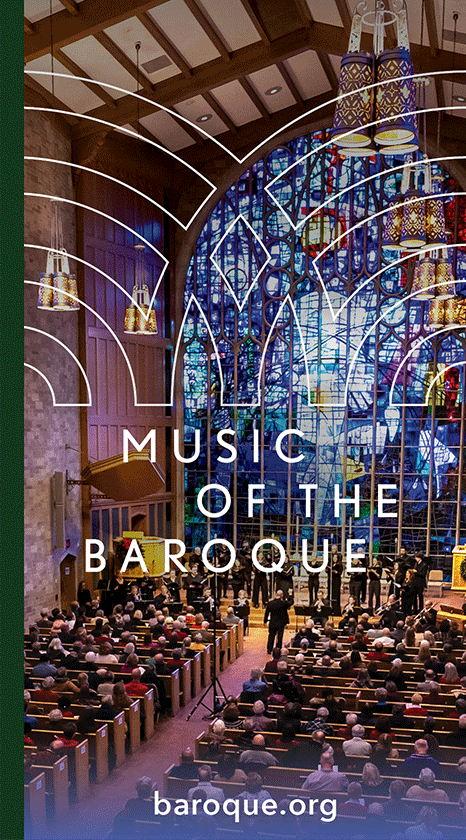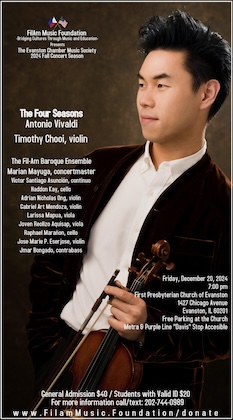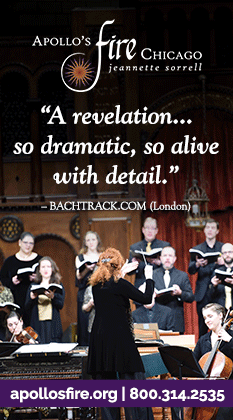In a superb return, Vengerov heats up a hot night with the CSO at Ravinia
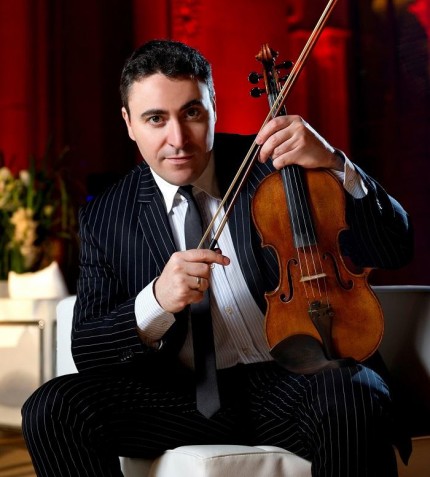
The lawn was more sparsely inhabited than usual for the Chicago Symphony Orchestra’s concert Wednesday night at the Ravinia Festival—likely due in equal parts to the enervating heat and a lineup short on populist summer blockbusters.
But give festival music director James Conlon points for efficiently marking two composer anniversaries in one program with music of both Richard Wagner and Benjamin Britten.
Wednesday’s concert in Highland Park also brought the return of Maxim Vengerov, who provided the evening’s star power in the rather unstarry Britten Violin Concerto. This was his second Ravinia performance in three days, having presented a recital Monday night at the Martin Theatre.
Vengerov was a regular visitor to Orchestra Hall throughout the 1990s collaborating with Daniel Barenboim and the CSO in many performances, several of which are documented on the Teldec label. The Siberian violinist, 38, has been less of a high-profile figure in recent seasons, in part due to an injury suffered in 2008.
There was certainly no evidence of any diminished technique in Vengerov’s sterling performance of the Britten concerto last night. Even under oppressive al fresco conditions for string players, Vengerov brought characteristic gleam, pure intonation and easy facility to Britten’s work.
Completed in 1939 and revised in the 1950s, Britten’s Violin Concerto is cast in the usual three movements but that’s where tradition ends. There are the requisite moments of bravura, largely in the central Vivace. But the dominant mood is one of unsettled reflection, and it’s hard not to sense contemporary war clouds hovering in the prevailing darkness of this music.
Vengerov was clearly in synch with this enigmatic work, bringing incisive virtuosity to the bursts of spiky agitation and terraced dynamics to the more introspective pages. The soloist underlined the Shostakovich influence in the cadenzas and conveyed the searching expression of the concluding Passacaglia, finding a degree of solace in the bleakly hushed coda.
Conlon drew alert, high-powered accompaniment from the orchestra with especially fine trumpet work by Mark Ridenour. Repeated ovations brought Vengerov back out for an encore, a supple, freely phrased Bach Sarabande.
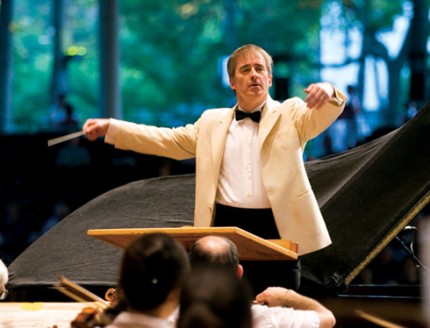
The nagging feeling that the souped-up accompaniment in the Britten concerto felt a bit over the top was underlined by the ensuing account of the “Four Sea Pictures” from Britten’s opera, Peter Grimes. Possibly the short summer rehearsal time had something to do with it, but the literal performance of these excerpts stayed on the near side of loud with little delicacy or seaside atmosphere. Conlon whipped up a cataclysmic tempest in the Storm section but his overblown climax to Dawn sounded more like Fafner emerging from his lair.
Happily, the Wagner excerpts that made up the rest of the program were largely more inspired. The Overture to The Flying Dutchman emerged strident and overdriven, though Scott Hosteteler lofted a lovely English horn solo.
Best were the excerpts that framed the evening. Conlon is clearly a first-class Wagnerian, having led performances of the Ring cycle in Los Angeles, and that skill was evident in the opener, the overture to Wagner’s early opera Rienzi. With a spacious introduction, Conlon drew a vital and rousing performance that yet benefited from a light-footed touch.
Even by their standard, the CSO strings dealt with the challenge of the evening’s humidity in stellar fashion with admirably true intonation throughout the evening. The violin tone was especially glowing in the Prelude to Act 1 of Lohengrin with a notably majestic yet well-balanced climax. Conlon made an attaca segue into a fast and fiery account of the Prelude to Act 3, providing an exhilarating coda to the evening.
Posted in Performances
